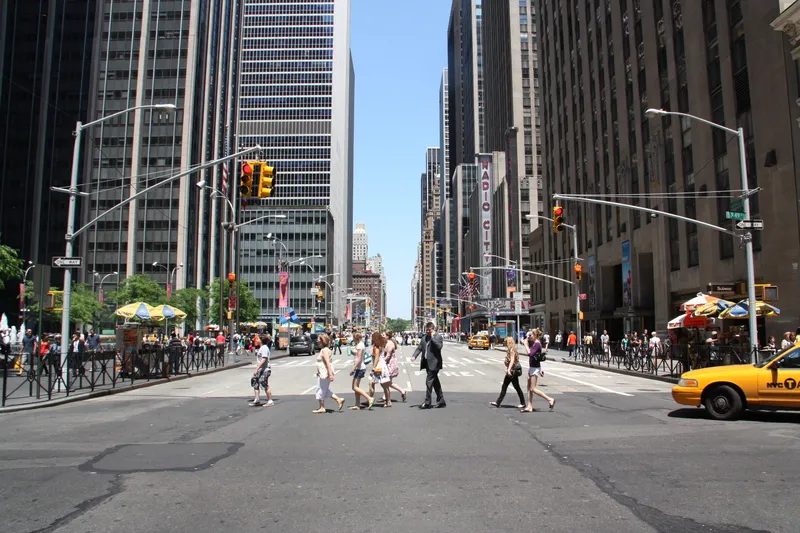
Giving pedestrians more time to cross the road at traffic lights leads to a significant drop in fatal and non-fatal injuries, according to new research.
In part this is due to making pedestrians more visible to drivers who are legally turning at the same crossing.
The study from Columbia University Mailman School of Public Health looked at 6,003 intersections in New York City between 2013 and 2018.
Of these, 2,869 had leading pedestrian intervals (LPIs) of 7-11 seconds - this means pedestrians can begin crossing before vehicles get a green light to turn.
“The idea is to give pedestrians time to reach the centre of the intersection where they’re more visible,” said lead author Christopher Morrison, PhD, assistant professor of epidemiology at Columbia Mailman School.
"Most pedestrian-vehicle crashes happen near the kerb, where drivers are less likely to see people crossing.”
Having this 'head start' at lights is associated with a 33% reduction in total pedestrian injuries at intersections in the city - consistent across all intersection types - researchers found.
The biggest effect was seen during daylight hours, when fatal pedestrian crashes dropped by 65%.
“LPIs are one of the most affordable and scalable traffic safety interventions,” Morrison adds.
“A seven-second delay for drivers can mean the difference between life and death for pedestrians. Our findings show they work—and could be adopted more widely.”
The research team focused on pedestrian injuries occurring within 100 feet of a signalised intersection.
Intersections within 10 feet of an LPI were categorised as 'treated'; those beyond 10 feet were considered 'untreated'.
In the US, over 68,000 pedestrian deaths and 6.1 million serious pedestrian injuries occurred between 2011 and 2020, the researchers say.
Funding for the research was provided by the CDC’s National Center for Injury Prevention and Control and the National Institute on Drug Abuse.










